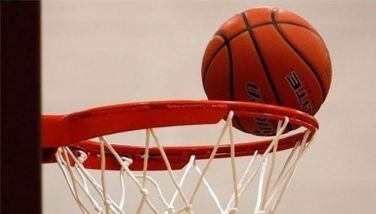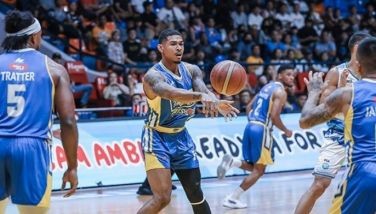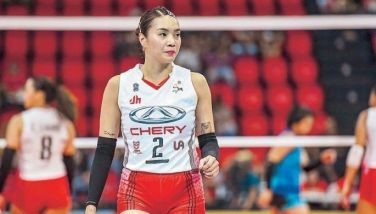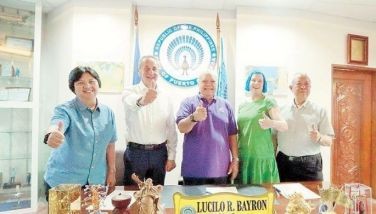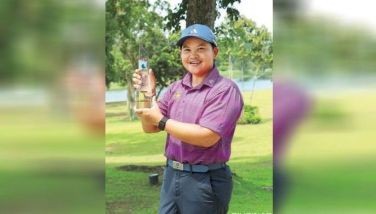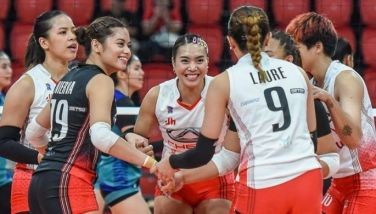Bay Ledesma: 20 years later
It gets increasingly rare to find someone who started playing basketball before I was born, or even someone who was part of the PBA in its early years. Yet, those of us who have been fans of the game and the league for more than 20 years still seek out some connection with its past. The personalities who moved around the sport in its intense youth, who went from background players to ciphers to icons, made a mark for their consistency. We used to call them characters, and they are harder and harder to find in a world that insists on conformity.
This writer had last spoken with former PBA referee Genaro “Bay” Ledesma roughly a decade ago, when The Basketball Show was my main livelihood. As always, the conversation ranged far and wide, and we had some commonalities. Thankfully, in the course of finishing our film on the history of the PBA, we were able to sit down with him once again, 20 years after he retired as one of the most respected officials in league history.
Ledesma learned basketball on a dirt court near his childhood home in Pototan, Iloilo. He was a target of the teachers, and his mother had other dreams for him. He played for University of San Agustin’s high school team in Iloilo in the 1950’s. In 1959, he entered college, and the newly formed inter-collegiate league changed his life. The young forward was exposed to the best teams from the NCAA and UAAP, which all converged for a rare chance to be recognized as the country’s undisputed best.
“UE was in our group, and they expressed interest in me,” Ledesma recalls clearly. “So they talked with a friend of mine to ask if I was interested. But I was nervous. I told myself, wait a minute, that’s Manila, that will be hard. But my friend pushed me, and he would take care of me. To make a long story short, I spent my residency in 1960 when UE won a championship during the time of Rhoel Nadurata. They brought me to Hong Kong. So that’s the start of my becoming a UAAP player.”
For the first time, Bay was converted to a guard, for reasons he attributes to Baby Dalupan’s instinctive style. The Red Warriors continued to win, and Ledesma’s world widened, as they were rewarded with travel abroad, and toured the Philippines, including places he had never been to like Davao and Cagayan de Oro. After graduating from UE, he and Jimmy Mariano joined Crispa in the MICAA. For eight years, he played on three different teams, ending with U-Tex. Bay had also gotten a job at the Social Security System. He stopped playing basketball in 1972, three years before the PBA opened. He wasn’t earning much, and his wife was also a government employee, so he needed to augment the family’s income. Since he knew of a friend who was an amateur referee, he called the PBA in 1976 looking for work. Three years later, PBA technical supervisor Crispin Aldiosa called him back. Bay started as a Class C referee, and had opportunities to watch or officiate Crispa-Toyota matches. He learned who complained a lot, and who tried to get away with things.
“You could say (Robert) Jaworski was one of them, but not really,” he smiled. “Mon Fernandez complained, but that’s normal to complain. Over at Crispa, Philip Cezar was one. Atoy Co didn’t really complain, Bogs (Adornado) didn’t really complain. But there were players like Johnny Revilla, you know, they were enforcers! So those were the players I always looked at first.”
Keeping two jobs wasn’t easy, but eventually, Ledesma was promoted to Class A, and given bigger games. The pay was better, and he started to get noticed even when he went to other offices for the SSS. He had accepted that referees would never have anyone on his side, each time he blew the whistle, at least half the people would be unhappy. And he gradually developed a reputation as being the stoic, businesslike foil of the fiery, famous Robert Jaworski whom he had known from UE and the MICAA.
“When we got to the PBA, he was really the most known player. I was on the officiating side,” Ledesma recalls. “And you know Jaworski, he liked to complain, especially when I’d call his karate chop. He’d say there was nothing. I’d say it was part of the body. At that point, you can’t prolong the debate. I wouldn’t be able to concentrate on the game, so I’d just walk away. If he chooses to follow, that’s a different story.”
How did he handle the rowdy crowd of those rollercoaster 1980’s and ‘90’s? Back then, spectators still threw things at the referees, and even challenged them to fistfights.
- Latest
- Trending














